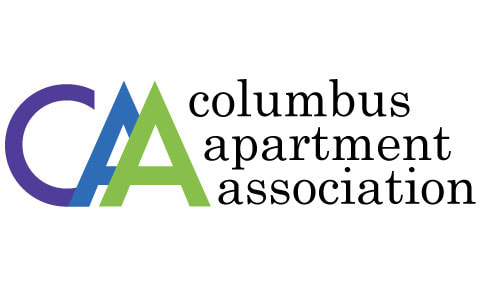Legislative Victories
HB 126 Real Estate Valuation Challenges - Effective July 19, 2022
Rent Control by Local Governments Prohibited
On April 21, a group of Columbus residents filed a proposed initiative that would create a new city Department
of Fair Housing that would be tasked with licensing landlords and running a residential rent control program.
An amendment was drafted using RC 5321.19, the existing landlord-tenant preemption statute, to make it clear
that rent control and rent stabilization are preempted under current law and that protects existing city
programs to incentivize affordable housing development.
The new language:
control preemption language and took in-person proponent testimony from Don Brunner on behalf of OAA,
CAA and NAA, Brent Crawford of Crawford Hoying, CAA Member. The committee vote was 10-2 on both the
addition of the amendment to the bill and on the bill itself.
On June 1, HB 430 was voted on by the Senate, where it passed 25-6 on party lines. The bill was sent to the
House, which voted to concur by a vote of 55-28. The bill was signed by Governor DeWine on June 24 and is
effective September 22.
Mandatory Rental Registration:
The City of Columbus proposed requiring all rental units to register with the City and pay a fee of $25-50 per unit and undergo inspection prior to re-renting the unit.
Retaliatory Evictions:
Sub Metering:
- The Ohio Apartment Association had a major legislative victory with the passage of HB 126. HB 126 ends a decades long practice of school boards abusive practice of challenging commercial property.
- Removes a requirement that, before a school district may file a counter-complaint, the district must first adopt a resolution authorizing the counter-complaint.
- Removes a requirement under current law, that school districts receive notice of any complaint if the complaint alleges a change in full market value of at least $50,000. Also, modifies the timeline in which school districts can file a complaint, to 30 days after the initial complaint is filed.
Rent Control by Local Governments Prohibited
On April 21, a group of Columbus residents filed a proposed initiative that would create a new city Department
of Fair Housing that would be tasked with licensing landlords and running a residential rent control program.
An amendment was drafted using RC 5321.19, the existing landlord-tenant preemption statute, to make it clear
that rent control and rent stabilization are preempted under current law and that protects existing city
programs to incentivize affordable housing development.
The new language:
- Defines “rent control” and “rent stabilization”
- States that no political subdivision may enact, adopt, renew, maintain, enforce, or continue in existence any [law] that is in conflict with Chapter 5321 or that regulates the rights and obligations of parties to a rental agreement, “including, without limitation, by any way imposing ore requiring rent control or rent stabilization.”
control preemption language and took in-person proponent testimony from Don Brunner on behalf of OAA,
CAA and NAA, Brent Crawford of Crawford Hoying, CAA Member. The committee vote was 10-2 on both the
addition of the amendment to the bill and on the bill itself.
On June 1, HB 430 was voted on by the Senate, where it passed 25-6 on party lines. The bill was sent to the
House, which voted to concur by a vote of 55-28. The bill was signed by Governor DeWine on June 24 and is
effective September 22.
Mandatory Rental Registration:
The City of Columbus proposed requiring all rental units to register with the City and pay a fee of $25-50 per unit and undergo inspection prior to re-renting the unit.
- The fee and time involved would have been an enormous cost to rental property owners and inconvenienced potential renters.
- CAA was able to prevent this legislation from being introduced.
- CAA members own about 150,000 apartments. A $50 per unit fee would have cost the industry $7.5 million dollars a year.
Retaliatory Evictions:
- The City of Columbus proposed changing the retaliatory eviction ordinance that would allow more renters to claim an eviction was retaliatory.
- The proposed ordinance increased penalties and would have prevented an owner from evicting a tenant for any reason for 6 months after a finding that an owner filed a retaliatory eviction.
- CAA worked with City Council and the City Attorney to re-draft the ordinance so it would not conflict with state law and was fair to both the resident and the owner.
Sub Metering:
- The Ohio General Assembly introduced several bills to regulate sub metering of utilities.
- One version could have prevented sub metering, another would have classified owners that sub meter utilities and subjected owners to costly regulatory requirements.
- The Ohio Apartment Association and other collaborators were successful in keeping these bills from becoming law.

